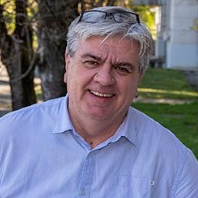Assistive Technologies in Everyday Living
A special issue of Applied Sciences (ISSN 2076-3417). This special issue belongs to the section "Computing and Artificial Intelligence".
Deadline for manuscript submissions: closed (20 June 2023) | Viewed by 2888
Special Issue Editors
Interests: evaluation of visual impairments; new technologies in the rehabilitation of persons with visual impairments; rehabilitation informatics; assistive technologies
Interests: assistive technologies; smart technologies; traffic system; e/mBusiness; communication technology; Society 5.0
Interests: intelligent systems; artificial intelligence; machine learning; intelligent agents; multiple knowledge representations; assistive technologies
Special Issues, Collections and Topics in MDPI journals
Interests: innovative communication ecosystem; digital forensic; communication security; Industry 4.0; machine learning; AI
Special Issues, Collections and Topics in MDPI journals
Special Issue Information
Dear Colleagues,
The development of assistive technologies nowadays aims to raise the ability of people with disabilities to perform their daily living needs. The new challenges faced by people with disabilities require an innovative approach to the design and development of new services based on the working principles of assistive technologies. Therefore, this Special Issue is intended to present new ideas and experimental results in the field of the development and application of assistive technologies. It also emphasizes the importance of education and learning methods for people with disabilities using the possibilities provided by new solutions and services in the field of the development of assistive technologies. Areas of assistive technologies that are relevant for the development of new services and solutions include artificial intelligence, the development of algorithms and applications, wireless technologies, ambient assisted living, enhanced living environments, education methods, e-Health, Society 5.0, wearable technologies, and sensors networks. The concept and development of assistive technologies require the application of the basic principles of universal design; therefore, this area is also very important for the application of new solutions and services in the everyday life of people with disabilities.
This Special Issue will publish high-quality, original research papers in the overlapping fields of:
- Cloud/edge/fog/dew computing;
- Artificial intelligence;
- Autonomy and active ageing;
- Ambient technology for everyday living;
- Internet of things and smart devices for software everyday living;
- Smart environments and housing;
- Smart industry;
- Society 5.0;
- Software and applications for everyday living;
- Wearable technologies;
- eHealth;
- Security and privacy in eHealth;
- Education methods of assistive technologies.
Prof. Dr. Ante Bilic Prcic
Dr. Marko Periša
Prof. Dr. Matjaz Gams
Prof. Dr. Dragan Peraković
Guest Editors
Manuscript Submission Information
Manuscripts should be submitted online at www.mdpi.com by registering and logging in to this website. Once you are registered, click here to go to the submission form. Manuscripts can be submitted until the deadline. All submissions that pass pre-check are peer-reviewed. Accepted papers will be published continuously in the journal (as soon as accepted) and will be listed together on the special issue website. Research articles, review articles as well as short communications are invited. For planned papers, a title and short abstract (about 100 words) can be sent to the Editorial Office for announcement on this website.
Submitted manuscripts should not have been published previously, nor be under consideration for publication elsewhere (except conference proceedings papers). All manuscripts are thoroughly refereed through a single-blind peer-review process. A guide for authors and other relevant information for submission of manuscripts is available on the Instructions for Authors page. Applied Sciences is an international peer-reviewed open access semimonthly journal published by MDPI.
Please visit the Instructions for Authors page before submitting a manuscript. The Article Processing Charge (APC) for publication in this open access journal is 2400 CHF (Swiss Francs). Submitted papers should be well formatted and use good English. Authors may use MDPI's English editing service prior to publication or during author revisions.
Keywords
- person with disabilities
- active daily living
- ambient assisted living
- smart traffic environment
- acceptance of ambient technology








